
Talking with singers: Michelle Bradley
InterviewOn singing Aida
I’ve done Aida in Nancy and in Erfurt. I’m getting this role under my belt but it’s still a new experience each time. Different conductors do different things and you realize there are things you never saw before. I’m looking forward to how I’m going to develop her this time.
I already know the role so I can focus on the new blocking this time. I have a wonderful conductor in maestro Joseph Colaneri. I’ve worked with him before at the Met. [This is a concert version, but] I haven’t sensed the difference. We had our first staging rehearsal and it looks just like a performance.
I still put the same amount of energy into preparation, whether it’s a recital in gowns and tuxedos or if it’s a full version with costumes and a set. I give it my all regardless because that’s what I have to do. [The rehearsal] is the easy part. The hard part is when I lock myself in a room and go over the score, figure out who the character is, make sure I get every pianissimo and forte, and accent and legato. When I come here, it’s already engrained in me. I can just go where the director tells me to go.
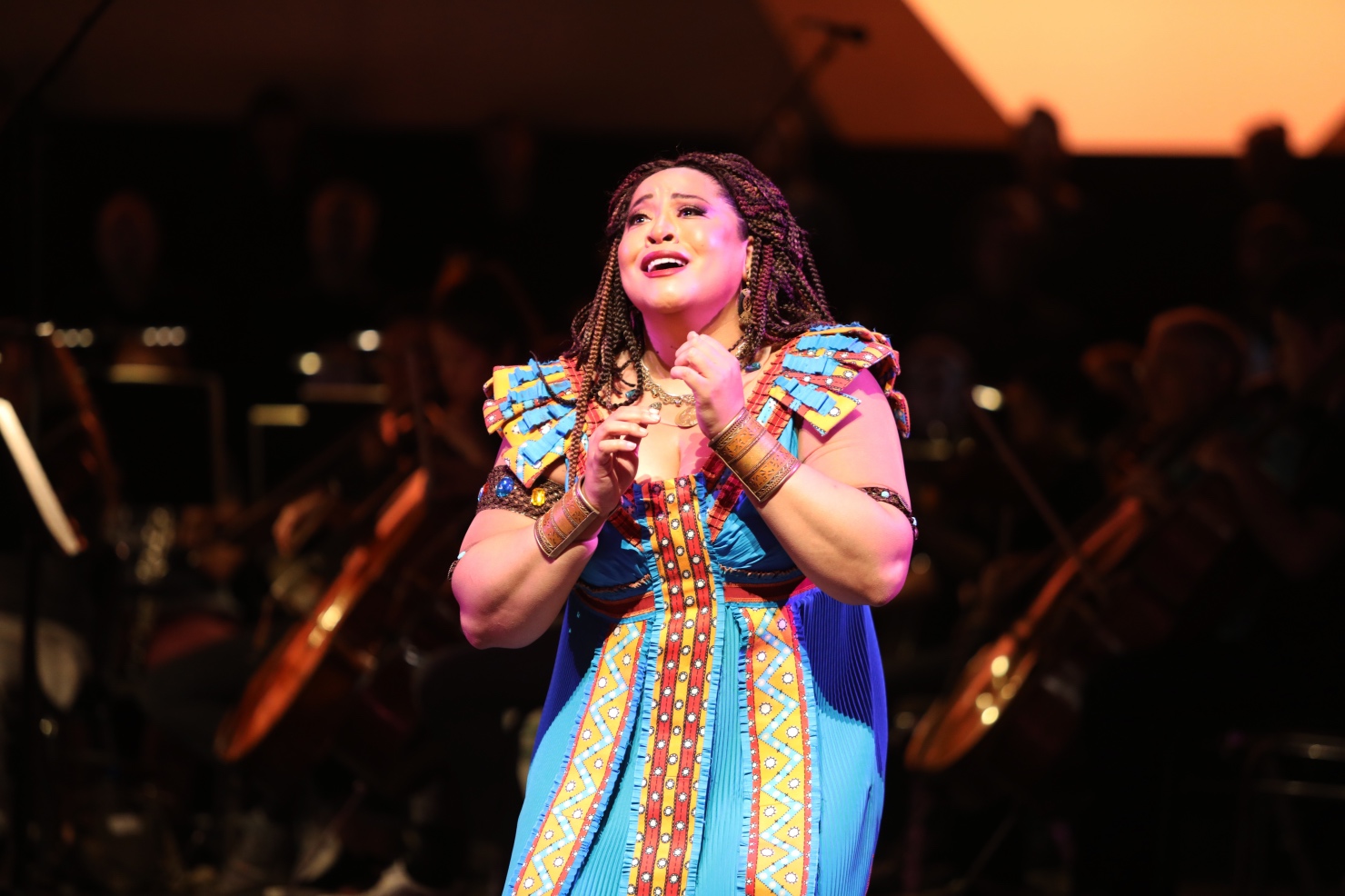
I have a trusted inner circle of musicians I work with when I prepare a role to go through the foundation work. Then on my own, I start building who the character is and working on how I can bring more to each phrase. It’s a process. Some days, it can be hard focusing and I can only sit for 10 minutes. Sometimes I can sit for hours. What I love is that if I ever need to get my mind off something, I can go to my music and focus for a little while, even if it’s only 10 minutes.
Her lessons are like a performance. She sings with me and I just imitate.
On her teachers and mentors
My teachers helped me gain confidence. I still keep in touch with all of them. They follow me and come to my performances when they can. I see everyone of my teachers as a family around me that supports me. They all gave me something special. I’ve had a lot of help.
Lois Alba was my teacher when I was in Houston (Houston Grand Opera). She was a very important one. Diana Soviero, the wonderful soprano, was my teacher when I was in the Metropolitan Opera’s Lindemann Young Artist Program.
Lois put in my mind that I could be at the Metropolitan Opera. I didn’t know about opera. From the first moment, she said I had a world-class voice. I remember her clear as day telling me to come and see her every day I could, and “we’re going to get you to the Met because that’s where you belong.” She said it in her good ol’ Texas strong woman accent. You didn’t argue with her.
Myra Merritt was my grad school teacher at Bowling Green State University. With her, I was in grad school and I was still trying to find myself and where I was going. I knew I loved music but I didn’t know I could take it as far as I’ve gone. She is such a classy lady. She carries herself like a queen, always well dressed, never a hair out of place. She taught me to have confidence as a woman, not only a singer. I used to wear baseball caps and flannel shirts and Nikes all the time and didn’t want to put on a dress. She taught me to embrace my femininity and use it to my advantage, to hear myself in a loving way, and love the woman that I am.
I just knew I had to work hard. I felt like I was playing catch up.
Diana Soviero put the icing on the cake. I learned the pianissimi I can do from her. I learned the expression from her, and giving everything you have when you get out on the stage. I learned that from watching her. Her lessons are like a performance. She sings with me and I just imitate.
Marilyn Horne, the wonderful mezzo soprano; I did the Music Academy of the West with her in the summer of 2014. That was the pivotal moment that changed my life. Since then, I’ve been going up and up. She’s been a wonderful support.
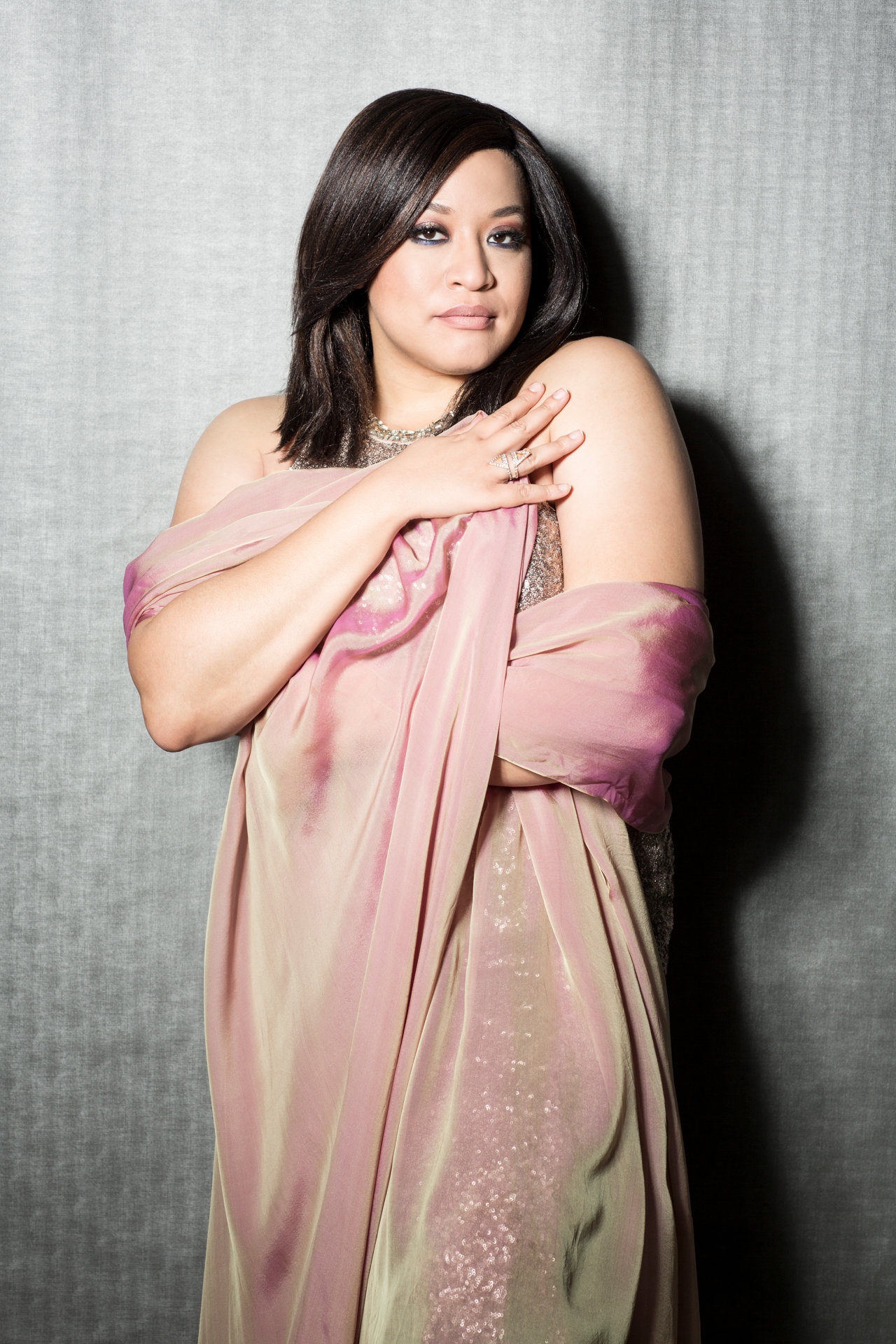
On her career compared to her expectations
I honestly didn’t know what to expect. I just knew that I love what I do and I’m learning as I go. I’m leaning how to work with different types of people and how to be able to learn different types of music at the same time.
I’m also learning how to travel efficiently. I know how to get through the airport quickly. I have a nice little rhythm going now. I know what energy I need in order to do a certain role, in order to get up at 5 AM to catch a plane. I know my voice better and I know my body. I learned that along the way.
I had no idea what to expect. I just knew I had to work and especially when I got to the Lindemann Program, I wasn’t as advanced as my colleagues. I didn’t even speak a second language when I got there. I just knew I had to work hard. I felt like I was playing catch up.
Even with my career going upwards now, I still haven’t arrived. [Arrived means] getting to where Jessye Norman was – who I loved dearly and unfortunately never got to meet. She was a big influence on me. Leontyne Price, Maria Callas, Anna Netrebko – I don’t know if I’ll ever reach that but I’m trying. It’s taken long and other colleagues are already where I want to be but my path is mine.
You can’t be weak to sing Verdi. You have to be vulnerable and strong and be all out human.
On being a Verdi soprano
The roles I do are heavy stuff. Verdi is not for kids. I couldn’t have sung him when I was 25. I’m 37 now, a baby in the vocal world but I’m ready now for Verdi.
Being a Verdi soprano is about voice but also you need to have power and stamina. I come off as quiet, especially with people I don’t know, but with Verdi, I have an inner strength that I’ve learned. I’m pretty steadfast and tough and you have to be that way to sing Verdi. The third act of Aida, the fourth act of Il Trovatore, and the second act of La forza del destino are not for the faint of heart. You have to keep pushing.
If ever I’m having a rough day or can’t make sense of my life, I go to the practice room or somewhere and sing.
I love Verdi, how he gives me a little break in certain acts but when it’s time to get up and sing, he wants everything. You have to be prepared to give it. Now, I have the life experience for Verdi. I’ve been through some things that have toughened me up to deal with him. You can’t be weak to sing Verdi. You have to be vulnerable and strong and be all out human.
On why she sings
I love to sing. I’ve been doing it ever since I can remember. My parents were in the choir at church. I don’t come from a wealthy family and they worked really hard all their lives in order for us to have the smallest of things. Their way of dealing with that was coming home and singing every day.
From the time I was running around in diapers, my Dad would gather us all in the living room and we would sing church hymns. I have three brothers and my two older brothers would sing parts. I would just imitate until I got old enough. And then I was teaching my family songs and playing piano for them. It became a part of my life. It became something that helped me make my mark in the world. It helped people to see me and take me seriously.
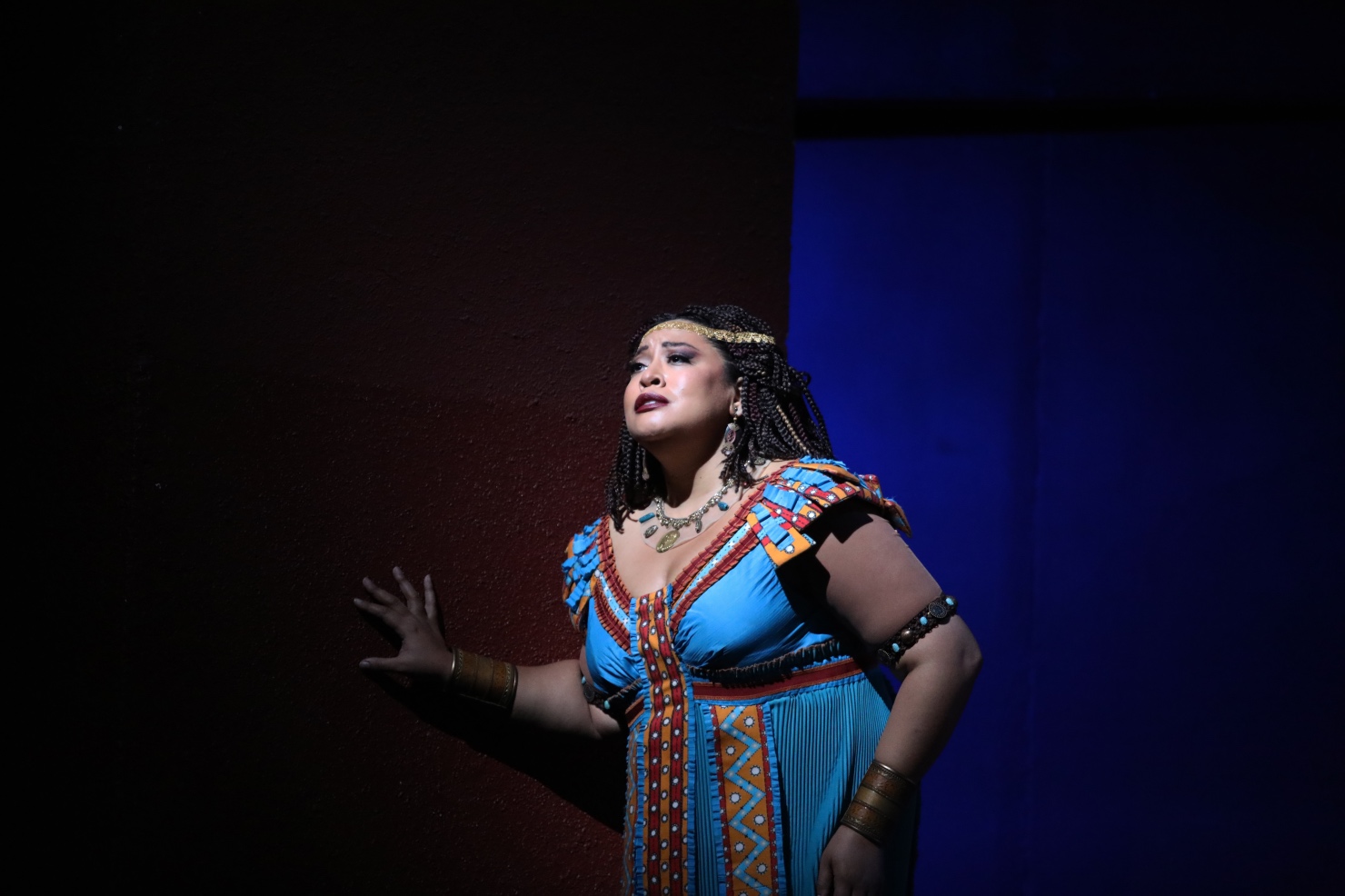
I used to get bullied a lot at school. I had crooked teeth so I would never talk. But I could always sing. When I started singing, my social studies teacher would put me up in front of the school, as shy as I was, to sing at every assembly, football game, soccer game and everywhere. I noticed people stopped picking on me then. They’d say I was the girl who could sing. It helped me make friends. I wasn’t sitting by myself that much anymore.
Growing up, it was a great outlet. Every day, I would get home from school and before my parents came home from work, I’d get my chores done and go and sing in the closet. When they got home, I would be quiet. My younger brother told them I sang in the closet every day after school. My parents put me up front in church.
My first vocal lessons were with my mom singing Whitney Houston songs.
As an adult now, it’s my career. It pays all my bills but it’s still an outlet. If ever I’m having a rough day or can’t make sense of my life, I go to the practice room or somewhere and sing.
I was going through a tough time when I started working with Lois Alba. That’s how I started Aida, “O Patria Mia”. I was 27. I had just started learning it and it was the only Verdi aria I knew. I’d go to her house and sing it almost every day for a few weeks. I didn’t yet have the capacity to focus on learning anything else. It was just the act of singing and bringing joy.
Afterwards, she would take me to the kitchen and make me something to eat, and because I was from Kentucky, she would give me a little taste of Bourbon Whiskey and send me on my way.
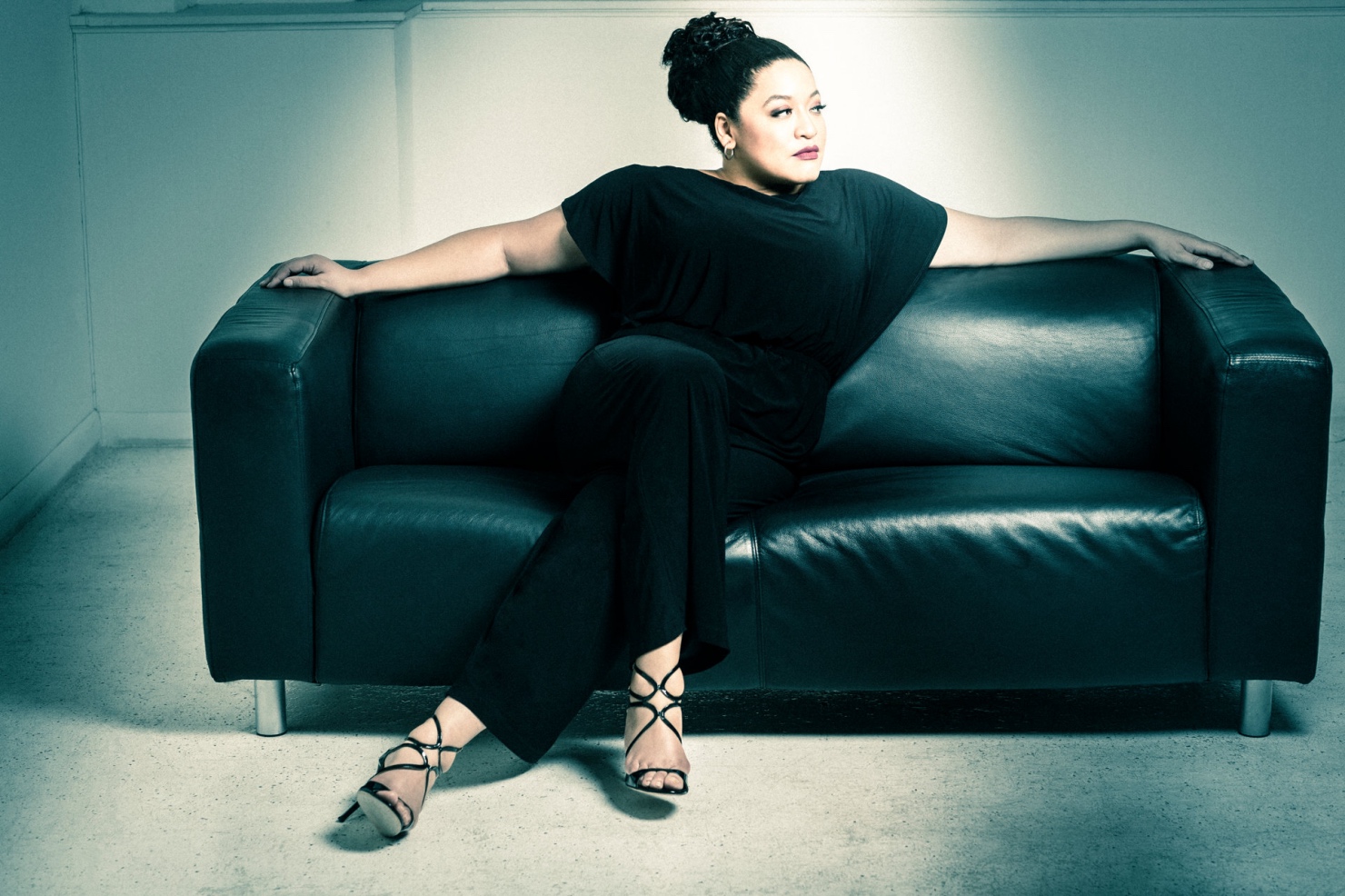
On her idols
It’s their pure beauty, voices from heaven. I’m not trying to preach but when you hear them, you’re definitely hearing God or some form of higher power. You know we’re not here by ourselves. We are not alone. There’s no way for that type of vocal beauty to exist and then you die and that’s it. We go through way too much on this earth to just end up as nothing. It fills me up every time I hear them.
With Whitney Houston passing away, it’s hard for me to listen to her music sometimes because I’m going to cry. We are never going to have a sound like that again. Once Leontyne Price will be gone, we are never going to get that again. They are like precious diamonds or stones.
Whitney Houston meant so much to me growing up. My mom would write down all the words so she could sing along with it. She’d be pressing rewind on the cassette player to get to the right part. I’d sing along too. That’s how I learned. My first vocal lessons were with my mom singing Whitney Houston songs. I wanted to be like her when I grew up.
I envy anybody who got to see Jessye Norman or Leontyne Price in their prime.
My first voice teacher, Andrew W. Smith, at Kentucky State University was a wonderful baritone. He gave me Leontyne Price’s The Prima Donna album but he never got it back. I was so taken with it. I would hide the portable CD player in my bag and hide the headphones under my long hair and I’d sit in class (I was a horrible student in school) listening to it. I would be walking around all the time with the headphones listening to her. He also gave me a Denyce Graves album. He was the one to usher me into the opera style of singing. I had no clue before that.
I’ve never met Leontyne Price but I really wish it would happen. I’m heartbroken that I never got to meet Jessye Norman. People compare me to her and I’m honored by that but I would have loved to say thank you and tell her how much she meant to me. Just watching her in recitals and what she did with words and how much she gave. I’m inspired by that and I want to do that.
I envy anybody who got to see Jessye Norman or Leontyne Price in their prime. Leontyne’s last Aida at the Met. Sometimes I wonder what I bring after all that. What does this little country girl from Kentucky have to give?
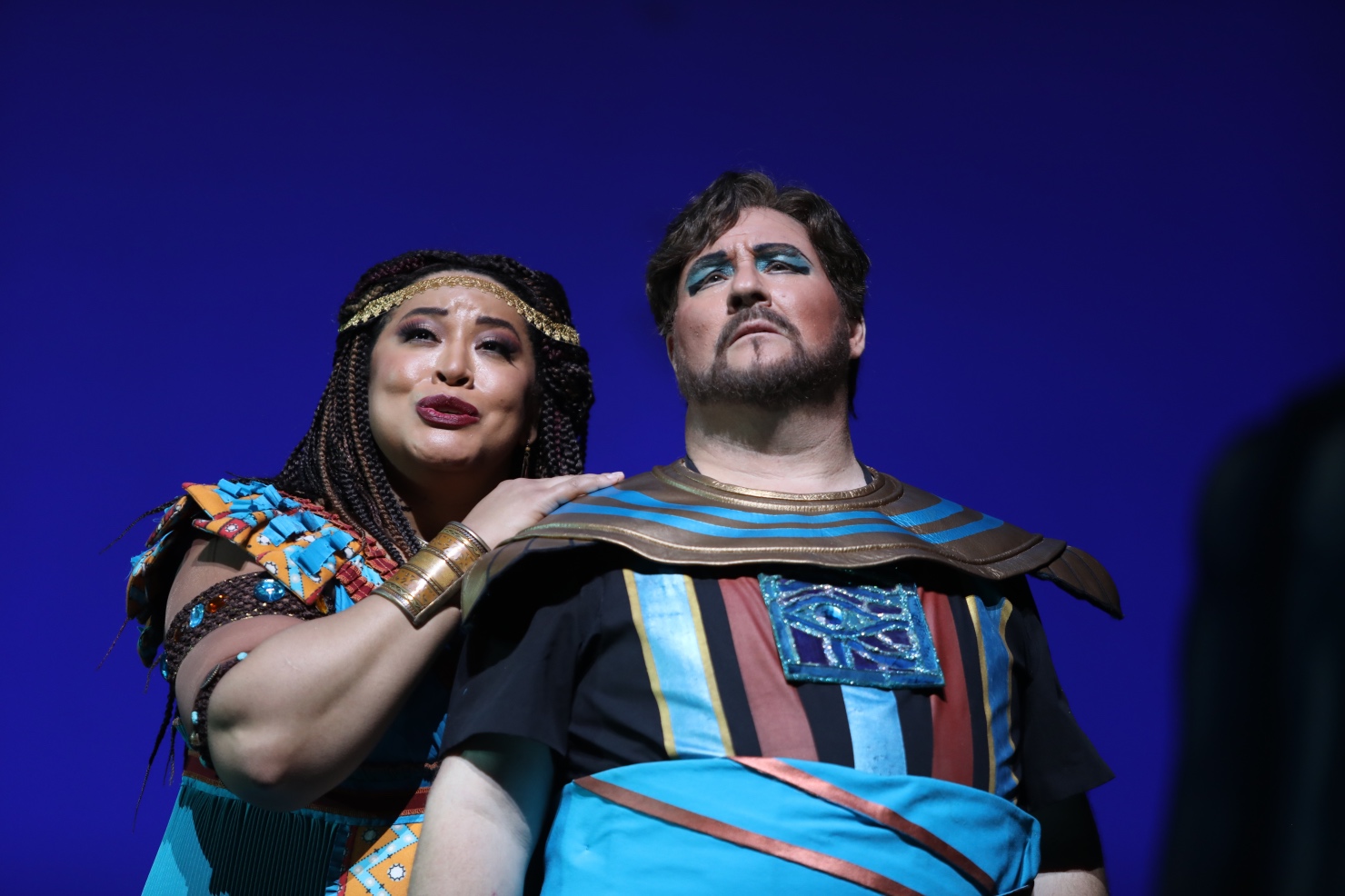
When I’m learning a piece, I only listen to a recording maybe three times, because I want to bring my own interpretation. The first one is always Maria Callas. She’s my first choice every time. Leontyne is more to just sit back and relax and bask in the beauty. It makes no sense that somebody can sing as beautifully as she sings.
Jessye Norman is another one. I just love watching her face and what she does with the words, and her mouth. Those are my top three go-to people when I’m learning a role and who I aspire to be in opera.
The challenge of trying to outdo myself, it keeps me going.
Her advice to young singers
It’s not for the faint of heart. You have to really want this. To get to a place of greatness like where Anna Netrebko is requires so much sacrifice. The money is good and you get a lot of applause and people waiting in line to see you but they don’t know the time it takes to learn a score, to devote yourself to that, to go to the coachings, to get up at any time, to be ready to sing any time, to sing when you don’t feel good, to keep your technique together for the days you don’t feel good but you still have to work.
The challenge of trying to outdo myself, it keeps me going.
There’s a lot of alone time. Unless you’re blessed to have somebody who understands and can travel with you, you’re probably traveling by yourself. That’s the hard part. Sometimes you have to be alone on the holidays, sometimes you don’t get paid for the work you do or not get paid enough. It’s not easy. Any performer will tell you that it’s a nomadic life. You stay in one place long enough to start making friends and then it’s time to go. More than likely, you’ll never see those people again. Thankfully we have Facebook to stay in touch, or calling, or letters. You have to be prepared to be alone a lot. You have to make sure you really want it. You have to really love it.
What keeps me going is once I get up on that stage, I aim for perfection. It never happens but the hope of getting it … I have some pretty good nights and that keeps me motivated. The challenge of trying to outdo myself, it keeps me going.


Comments